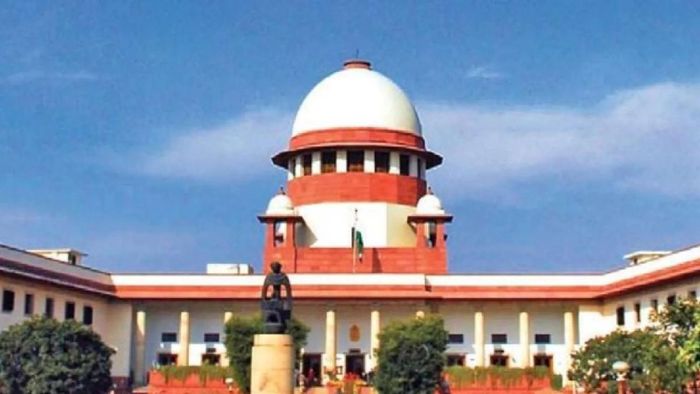Assam delimitation exercise: AIUDF moves SC against draft proposal
The party filed a case on July 16, citing concerns over the Election Commission of India (ECI) conducting the exercise instead of a Delimitation Commission, as previously practiced.

- Jul 17, 2023,
- Updated Jul 17, 2023, 8:05 AM IST
The All India United Democratic Front (AIUDF), the opposition party in Assam, has taken its dissent against the draft delimitation proposal for Assembly and Parliamentary seats to the Supreme Court. The party filed a case on July 16, citing concerns over the Election Commission of India (ECI) conducting the exercise instead of a Delimitation Commission, as previously practiced. The AIUDF contends that amendments made to relevant Acts in 2008 by the UPA government granted the ECI delimitation powers without sufficient accountability.
Speaking at a press conference, Aminul Islam, the AIUDF's organisational general secretary and MLA, stated, "We have challenged those amendments which handed over the delimitation power to the ECI. Because of the amendments, ECI can now form guidelines on its own and carry out delimitation without any accountability to anyone." The party insists that delimitation should continue to be the exclusive domain of the Delimitation Commission, which has historically been responsible for such exercises since India's independence.
The AIUDF's writ petition (Diary No. 28014/2023) against the Government of India was filed on Saturday, as recorded on the Supreme Court's e-court services. The party claims that the draft proposal has been designed to favor the Bharatiya Janata Party (BJP) and the Rashtriya Swayamsevak Sangh (RSS) to secure their success in the upcoming Assembly and Lok Sabha elections in Assam.
Islam further alleged that a Cabinet Sub-Committee of the Assam government submitted the proposal and guidelines to the state's Chief Electoral Officer, who forwarded them to the ECI. Subsequently, the central poll body published the draft delimitation document. Raising additional concerns, he questioned the need for the exercise to be conducted in Assam now, based on the 2001 census, when a nationwide delimitation exercise is scheduled for 2026.
According to Islam, the ECI's draft proposal will reduce the number of minority MLAs representing minority-dominated seats in the Assam Assembly from 31 to a range of 20-22. Akhil Gogoi, President of the Raijor Dal and MLA, held a separate press conference echoing similar concerns. Gogoi alleged that if implemented, the draft would significantly increase the number of constituencies where Bengali Hindus hold a majority, from eight to 24. He criticized the ECI for allegedly working as a "puppet" of the BJP and claimed that the proposal aimed solely to benefit the ruling party.
Gogoi further criticized the ECI's selective approach in inviting political parties to participate in the public hearing, scheduled for next week. He stated that the ECI had only invited 10 recognized political parties, omitting his party and other registered parties, as well as social organizations like the All Assam Students' Union (AASU). Gogoi raised concerns about the visit's purpose and claimed that it lacked meaningful engagement.
On June 20, the ECI released the draft delimitation document, maintaining the number of Assembly seats at 126 and Lok Sabha constituencies at 14 in Assam. The state currently holds seven Rajya Sabha seats. The draft proposes an increase in the number of reserved seats for Scheduled Castes (SC) from eight to nine and for Scheduled Tribes (ST) from 16 to 19. Additionally, it suggests two ST-reserved Parliamentary constituencies and one SC-reserved constituency. The ECI intends to alter the geographical boundaries of several constituencies, eliminate some seats, and create new ones.
Chief Election Commissioner Rajiv Kumar and Election Commissioners Anup Chandra Pandey and Arun Goel are scheduled to visit Assam from July 19 to conduct a three-day public hearing on the draft proposal. Earlier this year, an ECI team visited Assam in March and engaged with political parties, public representatives, civil society members, social organizations, and the general public regarding the delimitation exercise. The ECI received and considered representations from 11 political parties and 71 other organizations during the visit.